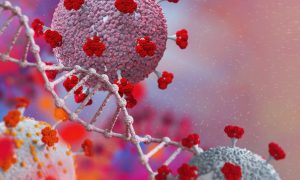Grumpy, Happy, Sleepy and Bashful – four of Disney’s dwarfs are named after feelings ruled by one chemical in the brain, serotonin. It may not make you Dopey or Sneezy, but abnormal serotonin levels will definitely earn you a trip to the Doc.
Neurotransmitters, like serotonin, essentially define who we are, because they don’t just control our emotions, moods and attitudes, but can also influence memory, energy levels and even libido. So what happens when our genes predispose us to different serotonin levels? Exhibit A, the “grouchy” gene is an altered version of a gene involved in serotonin uptake that makes people unhappy.
Serotonin is primarily found in the gastrointestinal (GI) tract, blood platelets and central nervous system. It is often called the “happiness molecule”, as it is responsible for feelings of pleasure and well-being. 5-HTT is the serotonin transporter that uptakes the serotonin into the neurons and is important for functional neural circuits.
Variations within the SLC6A4 gene that encodes 5-HTT can influence the levels of the transporter and its activity. A common variation of the SLC6A4 gene occurs in the promoter in a region known as 5-HTTLPR. Some people have a shortened version of the 5-HTTLPR section. This is known as the “grouchy” gene, as it is associated with an increased risk of depression.
The economist Andrew Oswaldo has gone so far as to suggest that the “grouchy” form of the gene can explain a cultural stereotype – why the British and the French are grumpy. Many more Brits, French and Americans have the “grouchy” version while, supposedly happier, people from Denmark and Netherlands are less likely to have the short form. The affects of the “grouchy” gene however are much more complicated, because the short form of 5-HTTLPR is also linked to an increased risk for a whole series of neurological diseases, (including depression, Alzheimer’s disease and bipolar disorder) and to drug addiction and sudden infant death syndrome. Furthermore, a variety of other genes and environmental conditions also control serotonin levels.
Did the Grinch steal Christmas because he had the “grouchy” gene, and was it his genetics that made him so unhappy? Irrespective of the answer, it is too late for Grinch, but even if you have the “grouchy” gene, there are ways to increase your serotonin levels. Drug-free methods include exercise, increased exposure to bright light and eating tryptophan rich foods like, turkey, pumpkin seeds, crab and beans. Tryptophan supplements are another option, as tryptophan is the key ingredient needed to make serotonin. Various antidepressants act by elevating serotonin levels, but unfortunately some of these may be less effective in individuals with the “grouchy” gene. Genetics might predispose you to be grumpy, but the decision to stay unhappy remains with you. Choose to act and fight for happiness, because it is most certainly well worth the risk.









